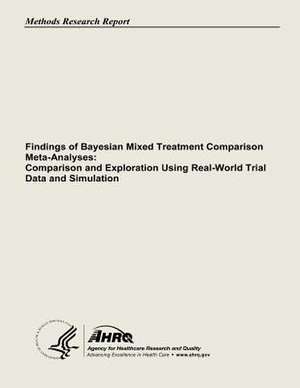Findings of Bayesian Mixed Treatment Comparison Meta-Analyses
Autor U. S. Department of Heal Human Services, Agency for Healthcare Resea And Qualityen Limba Engleză Paperback
Preț: 150.59 lei
Preț vechi: 158.52 lei
-5% Nou
Puncte Express: 226
Preț estimativ în valută:
28.81€ • 30.09$ • 23.79£
28.81€ • 30.09$ • 23.79£
Carte disponibilă
Livrare economică 25 martie-08 aprilie
Preluare comenzi: 021 569.72.76
Specificații
ISBN-13: 9781483944128
ISBN-10: 1483944123
Pagini: 148
Dimensiuni: 216 x 280 x 8 mm
Greutate: 0.36 kg
Editura: CREATESPACE
ISBN-10: 1483944123
Pagini: 148
Dimensiuni: 216 x 280 x 8 mm
Greutate: 0.36 kg
Editura: CREATESPACE
